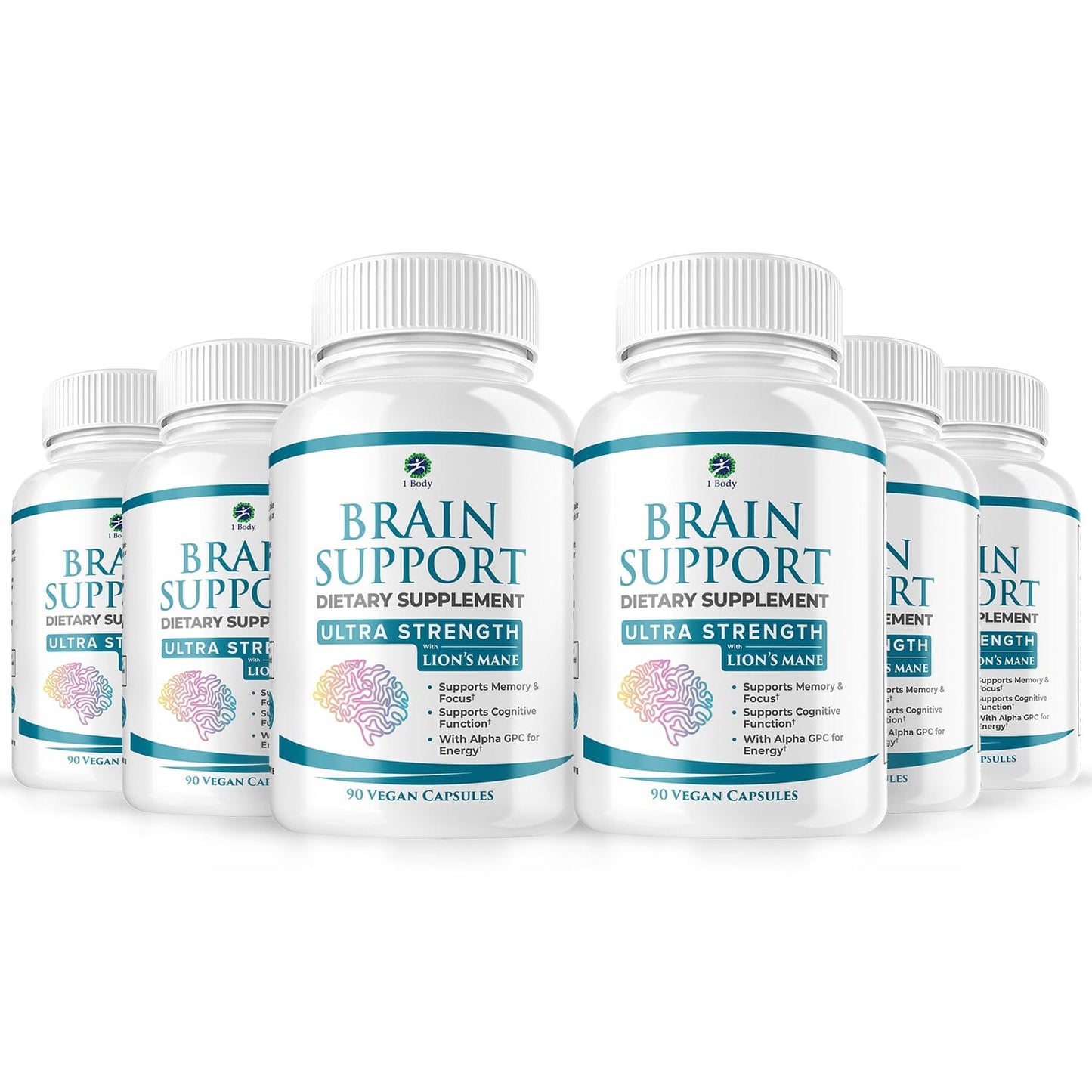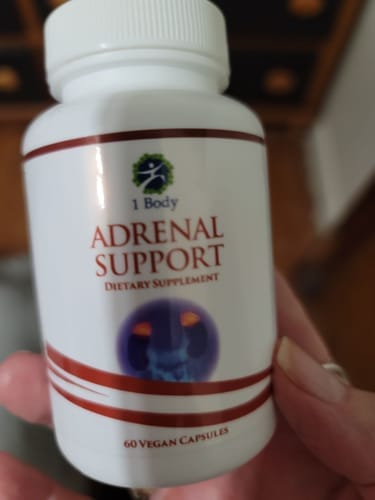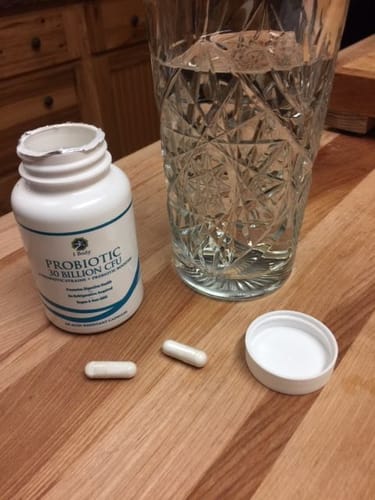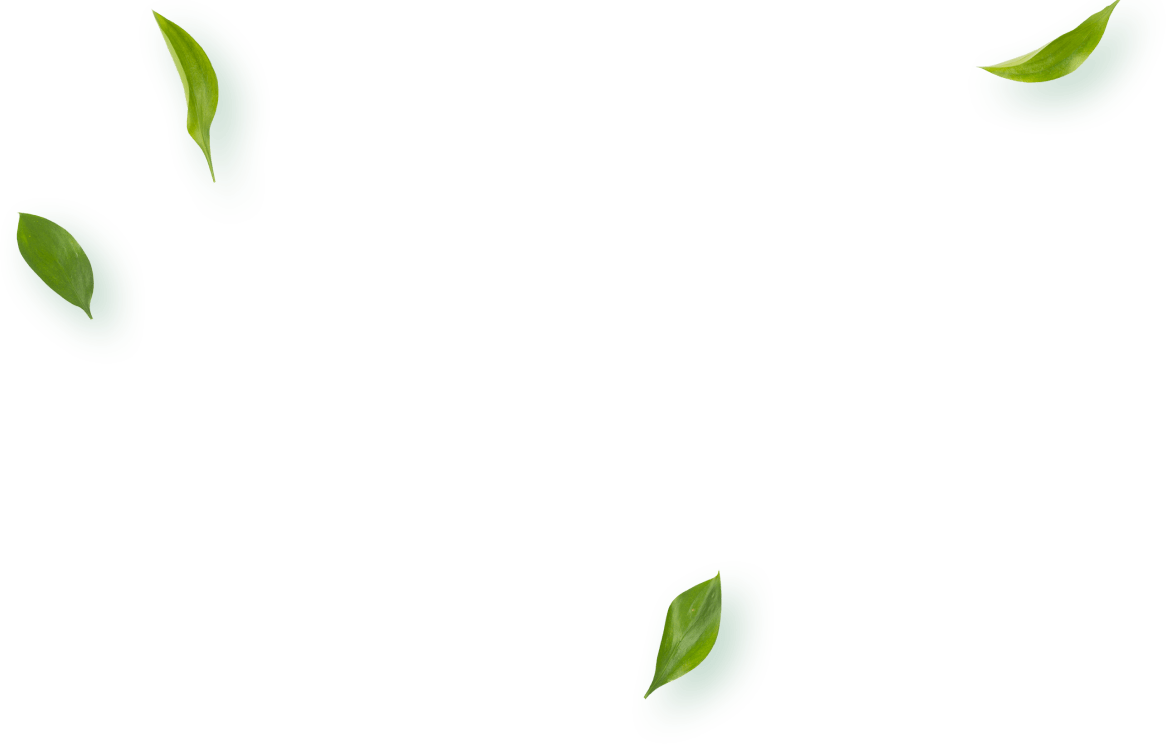









🏷 BEST PRICE EVER + FREE GIFTS TODAY ONLY! 🎁










-

MADE IN THE USA
-

GLUTEN-FREE PRODUCT
-

Made in a GMP-certified facility
-

100% VEGAN FRIENDLY
-

DAIRY-FREE PRODUCT
-

MADE WITH NON-GMO INGREDIENTS
Frequently Asked Questions
How do I take Brain Support?
We Recommend Taking 3 Capsules A Day, Preferably With A Small Amount Of Food. Use Consistently For Best Results.
How Long Will It Take Me To See Results?
Different People React Differently To Supplements. While Some Notice Results Within A Few Days, On Average It Usually Takes 2-3 Weeks To See Results.
Can I Take It With Any Current Medication That I'm Taking?
While Brain Support Is Generally Considered Safe, We Recommend Consulting With A Healthcare Professional Before Taking This Or Any Other Supplement If You Already Have An Existing Medical Condition.
What If I Don't See Any Results, Or The Results I'm Looking For?Is There Any Kind Of Guarantee Or Return Policy?
An Incredible Amount Of Time Has Been Spent Going Through Reports, Studies, Research Papers, In Order To Create The Best Supplements Possible - But More Importantly, So That They Deliver On What We Promise!
We Stand Behind Our Products 100% That's Why We Have A 60-Day Money Back Guarantee.
If You Don't See Any Results Or You Aren't Receiving All The Benefits You Had Hoped For, You Can Return It Within 60 Days For A Full Refund. Simply Email Us At help@1body.com And We'll Send You Instructions On How You Can Return The Item And Get Your Refund.
What Are The Key Ingredients In 1 Body Brain Support, And How Do They Work?
1 Body Brain Support features clinically studied ingredients like Lion’s Mane Mushroom for cognitive support, Sharp-PS® Phosphatidylserine for memory and focus, Suntheanine® L-Theanine for calm mental clarity, and Ginkgo Biloba for improved blood flow to the brain. Plus, it also contains vitamins and minerals that provide essential support for a healthy brain. Together, these ingredients promote better memory, focus, and mental energy.
Does 1 Body Brain Support Contain Caffeine?
No, 1 Body Brain Support is completely caffeine-free. Unlike supplements or energy products that rely on stimulants, our formula uses natural, clinically studied ingredients like Suntheanine® L-Theanine and Rhodiola Rosea to provide a clean energy boost, improve focus, and reduce stress—without the jitters or crashes associated with caffeine. It’s designed to work in harmony with your body, supporting mental clarity and balance naturally.
Testimonials

Patricia M.
 Verified
Verified

I truly count on my products from you to help my brain! You literally give a brain support; the longer I use it the better, younger, more functional and happier I am than before ever using brain support. It’s simply amazing.

Kathy C.
 Verified
Verified

I am feeling so much better and I can even think better I will be ordering more thank you

Christine S.
 Verified
Verified

Adrenal Support
I like it but haven't been on it long enough to know if it's working or not.

Lynne R.
 Verified
Verified

GREAT BRAIN SUPPORT
This as so good and I was able to try it every morning last month so I ordered another and it works fabulous. It helps your brain with memory and use every day! When you order it, the delivery is quick too. Please try it. You will be happy!

Christine S.
 Verified
Verified

1 Body Thyroid Support Supplement
I love this product. My hair was thinning and now it is starting to fill out in the thinning spots... I really highly recommend this product.

Mary S.
 Verified
Verified

Thyroid support
Love the price and how the thyroid product works for me thank you

Brenda G.
 Verified
Verified

Amazing Probiotic
This is a really great Probiotic! Personally, I have tried several and this is the best by far.


































